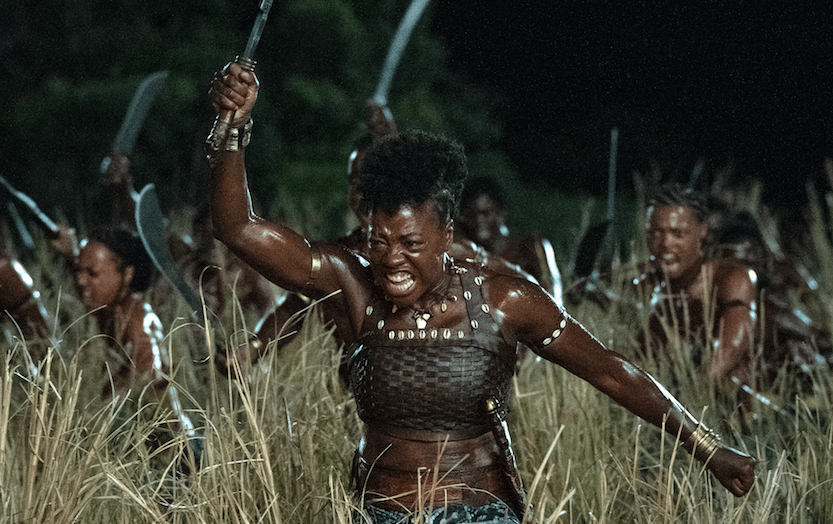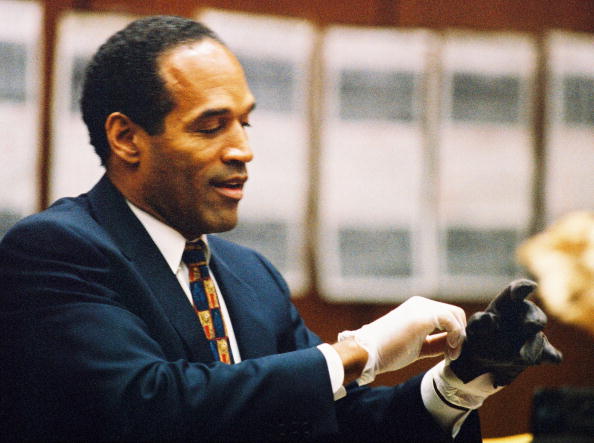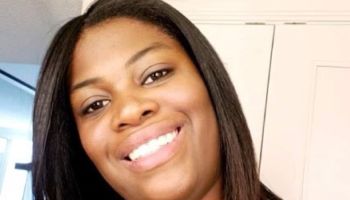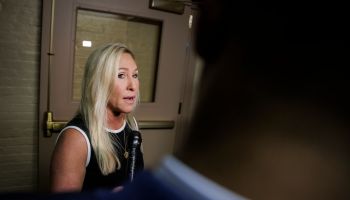
Source: Sony Pictures / Sony Pictures
Viola Davis’ highly anticipated film The Woman King dominated the box offices on Friday, pulling in over $19 million in sales and astonishing audiences across America. But while some fans praised Davis for her stunning portrayal of the brawny general, Nanisca, on-screen, a few critics slammed the movie’s director Gina Prince-Bythewood for downplaying some of the controversial historical contexts behind the film’s plot.
Who were the Agojie soldiers?
The epic drama tells the powerful story of the Agojie soldiers, a fierce 6,000-strong female warrior unit that protected the West African kingdom of Dahomey between the 17th and 19th centuries. Viola Davis plays the army’s fictional leader in the buzzing movie. In real life, the Agojies were known for their fearlessness. The warrior troupe was notorious for raiding nearby villages. During times of war they would slash off their resisters’ heads and return them to their king as “trophies,” the Smithsonian noted.
Prince-Bythewood’s riveting film celebrates the Agojie for their power and strength, but a few history buffs weren’t too pleased with the way the movie appeared to whitewash Dahomey’s dark historical involvement in the Atlantic Slave Trade. Between the 16th and 18th centuries, Dahomey and their female military regime played a large role in the trafficking of West African slaves. The African tribe sold off their captives to European traders who in turn, helped boost Dahomey’s wealth during the horrific period.
Critics accuse Sony and Gina Prince-Bythewood of whitewashing the Agojie’s dark past
After the film’s release on Friday, some critics flocked to social media with the hashtag boycott the woman king. A slew of users slammed the film’s production company Sony and Prince-Bythewood for attempting to “rewrite” the sordid past of the Agojie. Podcaster Antonio Moore called the historical epic “the most offensive film to Black Americans in 40-50 years.”
Another user accused the Hollywood bigwigs of “glorifying and whitewashing” the “truth” behind the Dohomey’s involvement in the slave trade. While a third user criticized award-winning actress Viola Davis for participating in the film.
“If you’re a Black American that cares about your ancestors #BoycottTheWomanKing,” a Twitter-goer named @TBMW wrote.” I don’t know @violadavis’s motives for going through with such dishonest and shameful movie but #TheWomanKing let it flop! The Dahomey fought to uphold slavery in Africa, just like the Confederacy.”
On the other hand, a few fans of the film argued that Prince-Bythewood and Sony did address the Dahomey’s controversial role in the slave trade. Some social media goers claimed that the historical fact played a large part in the film’s storyline. Here’s a spoiler alert, per the Smithsonian:
The Woman King opens in 1823 with a successful raid by the Agojie, who free captives bound for enslavement from the clutches of the Oyo Empire, a powerful Yoruba state in what is now southwestern Nigeria. Dahomey has long paid tribute to the Oyo but is beginning to assert itself under the leadership of Ghezo and General Nanisca. A parallel plotline finds Nanisca, who disapproves of the slave trade after experiencing its horrors personally, urging Ghezo to end Dahomey’s close relationship with Portuguese slave traders and shift to the production of palm oil as the kingdom’s main export.
Historians note that at one point, Ghezo, the king of Dahomey, did consider switching to palm oil production in real life, but the alternative revenue source proved to be far less lucrative than the exportation of slaves. The Dahomey participated heavily in the slave trade all the way up until 1852 when the tribe finally agreed to halt exportation after years of pressure from the British.
Film writer @Nijla1 on Twitter said she appreciated how the film “wrestled with questions of humanity, freedom, and autonomy in its characters, especially in their views about their society and ways to reform it.”
She added: “Historical context plays a large role in understanding motivations of that time.”
While critical race theory scholar Kimberlé Crenshaw urged fans to go see the film before boycotting the movie.
Gina Prince-Bythewood addresses the boycott hysteria
After backlash and criticism took the internet by storm, Prince-Bythewood addressed some of the criticism during an interview with IndieWire.
“I learned early on you cannot win an argument on Twitter,” the filmmaker explained, before arguing that she did carefully address the Dahomey’s historical past in the film. “I know all of that is going to go away once they see the film. There’s an assumption we’re not dealing with it and we are dealing with it. So I have to live in that confidence. They’re going to see the film and they’re going to see it.”
Cathy Schulman, a producer behind the film, also chimed in on the backlash. “I really wish that the conversations could happen around the film as opposed to around the anticipation of the film, because I think that we did not hesitate to investigate those areas,” she said. “The fact is that slavery is driven by material gain. It offered up people on this continent an option to make money that should not have been offered up or forced upon them. And, once it was, it created all sorts of internal conflict, and we don’t hesitate in visiting that within the film.”
Schulman added, “I’m a big believer that information is power, and I think that understanding issues surrounding slavery from the standpoint of the African perspective is relevant. We look at it most of the time from what happened once these people were enslaved and were actually landing here in America versus what was going on on the other side.”
Viola Davis has not responded to the backlash as of yet, but she did urge fans to support the film’s all-Black female cast and Prince-Bythewood, who is a Black filmmaker.
SEE ALSO:
7 Black Women Action Heroes That Deserve To Be Celebrated
You Still Mad ‘House Of The Dragon’ Added Black People? Get Over It.

















